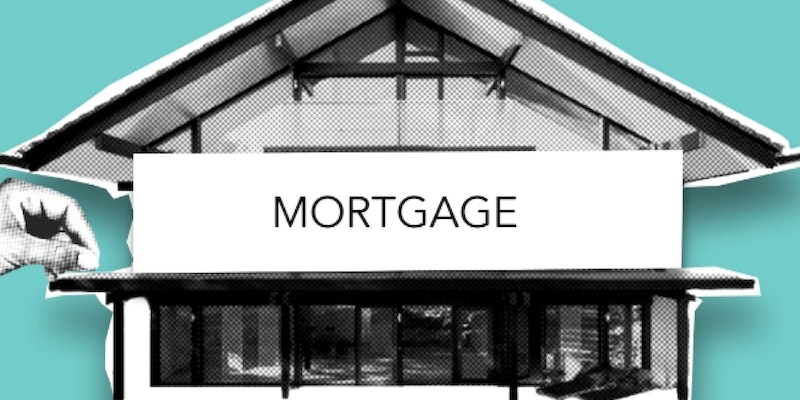Predictions on Mortgage Rate
Susan Kelly
Oct 27, 2023
Financial trends are constantly shifting, and a primary concern for many is the direction of mortgage rates. The health of the housing market often reflects the overall state of the economy. For homeowners and those considering buying, grasp the elements that sway mortgage rates. What's next for mortgage rates?
A Look at Current Mortgage Rates
Lately, mortgage rates have taken us for quite a ride. In the previous month, they soared past the 7% mark, reaching an alarming 7.57% in October's second week. Such a rate has not been seen since the turn of the millennium, sparking intense discussions among those looking to buy homes or refinance their existing ones. Given these rapid changes, concerns about the housing market's solidity and impact on individual financial plans are rising.
This notable rate increase has captured the attention of both the media and the public. As conversations around these rates intensify, staying updated and ready for upcoming shifts is crucial. For individuals considering stepping into the mortgage rates housing market or exploring investment property mortgage rates, monitoring these rate movements is of utmost importance.
Economic Factors Influencing Rates
It's only possible to discuss the housing market by discussing the economy. The Federal Reserve's inflation-fighting policies have caused unpredictability. In August, inflation reached 3.7%, exceeding the Federal Reserve's 2% target, indicating a fragile economy.
This inflation overshoot has prompted concerns about the economy. As these economic indicators sway, they inevitably impact mortgage rates, making it crucial for potential buyers and investors to stay updated. For those considering second mortgage rates, understanding these economic nuances can offer valuable insights into making informed decisions.
Expert Opinions on Future Rates
The future of mortgage rates housing market is a debate among financial experts. Their insights provide a glimpse into potential trends and shifts:
Jiayi Xu, a noted economist from Realtor.com, has shared her perspective, suggesting that a consistent improvement in inflation could lead to a potential decrease in mortgage rates. Her views resonate with many hopeful for a more stable rate environment in the coming months.
Mark Fleming of First American Financial Corporation has a slightly different take. He foresees the rates hovering between 6.5% and 7.5% for the remainder of this year. His prediction underscores the importance of being prepared for various outcomes, especially for those eyeing the mortgage rates housing market in the housing market.
Rick Arvielo, the CEO of New American Funding, offers another angle. He posits that we might see a rate dip once the Federal Reserve wraps up its current phase of tightening measures. His insights are particularly relevant for those exploring investment property mortgage rates, as any decrease could present lucrative opportunities.
Lastly, Matt Vernon from Bank of America weighs in, suggesting that small rate hikes by the Federal Reserve might not profoundly impact mortgage rates. His viewpoint is a reminder that while external factors play a role, other internal dynamics within banks and lending institutions influence the rates offered to consumers.
Refinancing in the Current Climate
The year 2023 presents a unique set of challenges for homeowners contemplating refinancing. With rates reaching unprecedented highs, those who obtained mortgages in 2020 and 2021 might question the wisdom of refinancing at this juncture. On the other hand, individuals exploring investment property mortgage rates or second mortgage rates might encounter a distinct landscape. It's crucial to weigh the immediate advantages of refinancing against the long-term financial implications.
In the backdrop of these elevated rates, the housing market has been a buzz of activity. Homeowners are keenly watching the trends, especially those who secured their mortgages when rates were at a historic low. The allure of lower monthly payments and the potential to save thousands over the life of the loan is tempting.
However, the current climate demands a thorough analysis. For investors, the investment property mortgage rates present another layer of complexity. The potential for rental income and long-term property appreciation might offset the higher rates. Similarly, those considering second mortgage rates must factor in their primary mortgage, equity position, and overall financial goals.
Predictions for the Next Five Years
Predicting mortgage rates housing market over five years is difficult. The dynamic global economy and domestic dynamics make predicting difficult. Some industry experts, however, have ventured to provide insights based on current trends. Daryl Fairweather at Redfin suggests a potential rate decrease could spur a more active housing market. Meanwhile, Melissa Cohn from William Raveis Mortgage envisions a possible 2% rate drop by 2025.
The housing market is intrinsically linked to broader economic indicators. The supply and demand dynamics, especially the noted low inventory in the housing market, significantly influence mortgage rates. If supply limitations persist and demand stays strong, prices may rise, indirectly affecting rates.
However, geopolitical conflicts, trade wars, and global economic downturns can affect mortgage rates housing market, and housing market patterns. For potential homeowners and investors, staying informed and agile is the key. The landscape is ever-evolving, and today's decisions can have long-term repercussions on financial health.
Factors Affecting Mortgage Rates
The determinants of mortgage interest rates are multifaceted. They span from global economic events to domestic monetary policies. The bond market, for instance, has a direct bearing on long-term mortgage rates. When bond yields rise, so do mortgage rates, and vice versa.
Additionally, the economy's broader health, as reflected in employment numbers, GDP growth, and consumer confidence, can influence rates. The Federal Reserve's actions, especially around the federal funds rate, also play a pivotal role.
Every lender operates under this economic framework but has its parameters. Consumer rates vary for every lender due to operational costs, business strategy, and risk appetite. Credit score, debt-to-income ratio, and loan-to-value ratio affect borrowers' rates. Lenders may raise rates when mortgage demand rises, especially in a strong property market.
Tips for Securing the Best Mortgage Rate

To get the most favorable rate for your situation, consider the following:
- Monitor rates regularly.
- Review your credit before applying.
- Compare options from multiple mortgage lenders.
Conclusion
The future of mortgage rates housing market depends on many things. Educating and getting expert counsel can help you make the most significant financial decision when buying a home, investment property, or second mortgage.







